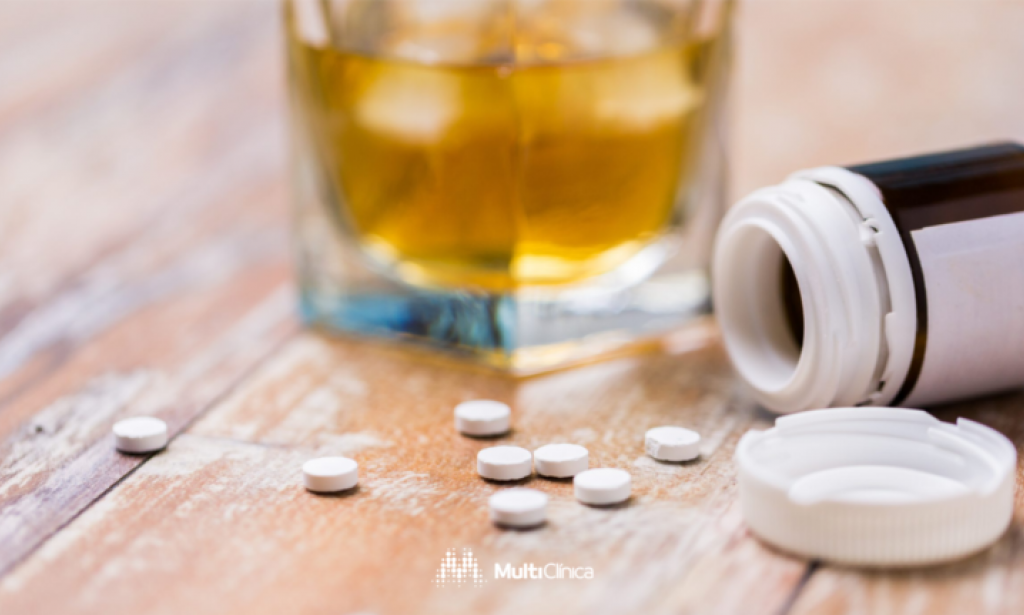
Consequences by type of medicines
Analgesics: Anti-inflammatory drugs, which have in their ibuprofen composition, naproxen and acetaminophen, can interact with alcohol and cause stomach pain, liver and tachycardia problems, depending on the dosage of the medicinal product and the amount of alcohol consumed. In the case of muscle relaxants, the consequences extend from drowsiness and dizziness to more dangerous problems, such as increased risk for convulsions, memory loss, decreased respiratory rate and difficulty breathing.
Antibiotics: The use of alcoholic beverage concomitant to some antibiotics such as metronidazole, chlorampenicol and sulfas, is contraindicated as it can result in a reaction similar to the "antabuse effect". This effect is characterized by: lack of air, headache, chest pain, skin blossing, heart rate increase, dizziness, nausea and vomiting. .
Anticonvulsants, antidepressants, sedatives or anxiolytic: their use may present synergistic interactions with alcohol, accentuating effects as sedation, decreased motor coordination and memory commitment, risk of falls, among others.

You must be logged in to post a comment.